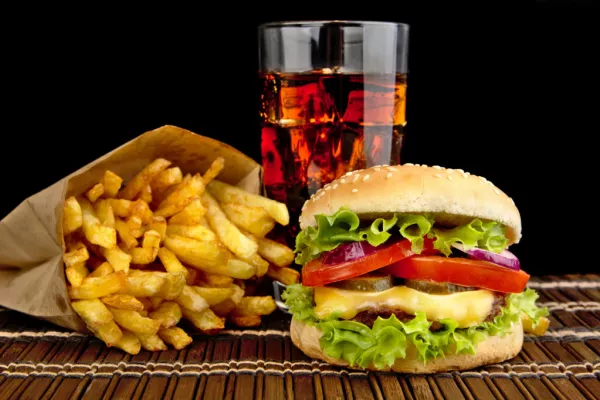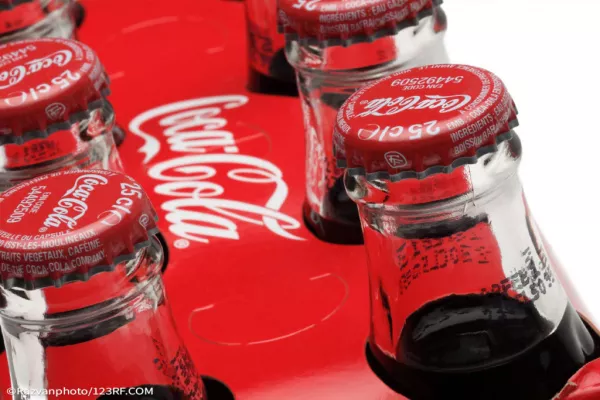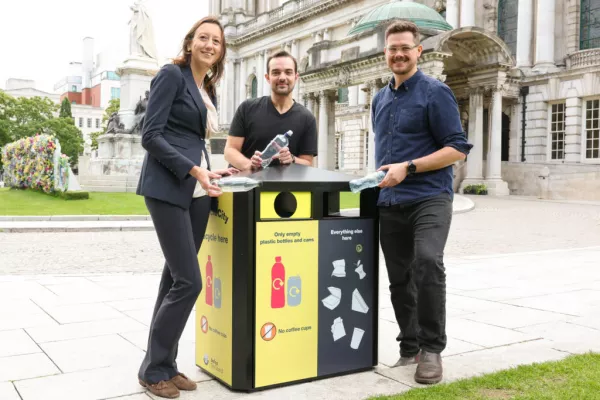Hospitality Ireland presents a round-up of the latest global food and drinks news.
Warburg Pincus-Backed Firm Buys Odwalla Brand From Coca-Cola
Full Sail IP Partners, a Warburg Pincus-backed investment firm that acquires brands, has told Reuters that it has bought the rights to Odwalla from Coca-Cola Co in a bid to revive the juice and smoothie label that the soft drinks giant discontinued last year.
This is the first acquisition Full Sail IP Partners has made since its launch as a joint venture between Warburg Pincus and brand licensing consultant LMCA in April. The financial terms of the deal, which does not include production and delivery of Odwalla, were not disclosed.
Full Sail Partners plans to popularize Odwalla, which was founded in 1980, by marketing products under the brand with health benefits, including low sugar drinks, its CEO Alan Kravetz said in an interview. It also expects to expand beyond the beverage category into food and supplements, as well as adopting a direct to consumer strategy.
"We think that nutrition, health, wellness, vitamins, minerals - ingredients that really provide health benefits, in addition to tasting good - are the wave of the future. We intend to include them in the Odwalla products," Kravetz said.
Full Sail IP Partners is also scouting for companies in other industries, from consumer electronics to enterprise businesses.
"There are brands out there that have been owned by large companies that don't fit their strategy going forward. And being smaller and more narrowly focused, we can develop these brands in a way a larger company can't," said Kravetz.
Once Nasdaq-listed Odwalla was bought by Coca-Cola for $181 million in 2001. Its popularity waned over time.
Last month, PepsiCo sold Tropicana, Naked and other North American juice brands for $3.3 billion to French private equity firm PAI Partners.
Fever-Tree Profit Jumps But Supply Snags Hurt Margins
British tonic maker Fever-Tree Drinks reported higher half-year earnings on Wednesday September 15, but warned rising shipping costs due to global supply chain disruptions were hurting profit margins.
The company, which sells premium tonics and drink mixers, said it benefited from strong sales in the United States during the six months to June 30.
The results come two months after the group raised its annual revenue forecast, betting on people stocking their fridges for the summer and soaring demand from bars and restaurants.
However, global supply bottlenecks at ports and warehouses, partly the result of surging consumer demand as nations emerged out of lockdowns, have pushed up shipping prices, delayed orders and increased costs for companies across industries.
A crippling shortage of truck drivers is also adding to the problem.
Fever-Tree said that the supply snags will likely stretch into 2022.
The company has addressed the issues by increasing shipments to its key US market, building local inventory and working with its UK logisitics partner to manage truck driver availability during peak periods, moves that have increased expenses, it said.
Many of Fever-Tree's UK peers across industries including major industrial firms and retailers like Ocado and Dunelm are also facing supply disruptions.
Fever-Tree said that half-year revenue jumped 36% to £141.8 million, while core profit climbed 23% to £29.2 million. Gross profit margin, the proportion of profits earned from sales, slumped to 44.1% from 46.8% a year earlier.
DoorDash Sues New York City Over Customer Data Law
DoorDash Inc sued New York City on Wednesday September 15 over a new law requiring food delivery companies to share customer data with restaurants, saying that it violates customer privacy and lets restaurants compete unfairly.
The lawsuit is the latest battle in a series of legal clashes between food delivery app companies and cities.
It was filed in federal court in Manhattan six days after DoorDash, Grubhub Inc and Uber Eats sued the United States' most populous city over a separate law capping fees that delivery companies charge restaurants.
"The law puts consumers first," Nicholas Paolucci, a spokesman for the city's law department, said in an email. "It puts them in control of their information when they place orders through these apps."
New York City has tried since the coronavirus pandemic began to help restaurants that had complained about food delivery app fees as high as 30%, but which became more dependent on delivery as dining rooms closed or limited capacity.
Approximately 90,000 restaurants nationwide have closed temporarily or permanently during the pandemic, costing 1.5 million jobs, the National Restaurant Association said in June.
In Wednesday September 15's lawsuit, San Francisco-based DoorDash said that the city exhibited "naked animus" by requiring food delivery app companies to provide customers' names, phone numbers, email addresses and delivery addresses to restaurants.
DoorDash said this would let restaurants "free-ride" on data they would not demand from in-person diners, in a "shocking and invasive intrusion of consumers' privacy."
It also said "more vulnerable populations, especially undocumented customers" could be harmed if data were mishandled, and shared with immigration authorities or hate groups.
Soon after the pandemic began, New York City imposed temporary 5% and 15% fee caps on food delivery apps, which the companies hoped would end as restaurants resumed more normal operations.
The caps cost DoorDash, Grubhub and Uber Eats hundreds of millions of dollars of revenue through July, the companies said.
DoorDash and Grubhub sued San Francisco in July over fee caps there. Chicago sued those companies last month, saying their deceptive practices misled customers and hurt restaurants. DoorDash and Grubhub rejected Chicago's claims.
The case is DoorDash Inc v City of New York, US District Court, Southern District of New York, No. 21-07695.
PepsiCo To Reduce Plastic Use And Launch Plant-Based Snacks In Green Push
PepsiCo will cut back on the use of virgin plastic and expand its SodaStream carbonated-water business to more markets amid growing calls to combat climate change, although some environmental groups want the company to do more.
As part of a new initiative called "pep+", the food and beverage giant said on Wednesday it was aiming to reduce virgin plastic use per serving by half across all brands by 2030 and use 50% recycled content in all its plastic packaging.
It also plans to focus on healthier food by introducing plant-based protein snacks in partnership with Beyond Meat Inc . PepsiCo is targeting early 2022 for its first Beyond Meat products, Chief Executive Ramon Laguarta told CNBC in an interview.
The moves come as PepsiCo and rival Coca-Cola have become new targets for global activism, given the amount of single-use plastic waste they generate. The companies have also featured on NGO Break Free From Plastic's list of the "top global polluters" for the last three years.
According to Greenpeace, PepsiCo uses 2.3 million metric tonnes of plastic every year, while Coca-Cola is responsible for over 100 billion bottles of single-use plastic. PepsiCo has set targets to make 100% of its packaging recyclable, compostable or degradable by 2025.
"[There is] still too much emphasis on recycling for a company that is consistently ranked among one of the world's worst plastic polluters," said Graham Forbes, global project leader at Greenpeace USA.
"The company needs to set ambitious reuse/refill targets for all products and brands."
PepsiCo was not immediately available to comment on Greenpeace's statement.
PepsiCo's ambitious plastics plan also includes scaling its SodaStream business globally, Laguarta told Reuters in an interview. SodaStream, acquired by PepsiCo in 2018, makes machines and refillable cylinders that let users make their own soda or carbonated water drinks at home.
The brand, currently in 40 countries, will bring new flavors into 23 more markets and introduce its new SodaStream Professional platform aimed at businesses in 10 additional markets by 2022, the company said in a statement.
HelloFresh To Spend €50m For New Hires In Tight Labour Market
Meal-kit company HelloFresh will spend €50 million to recruit 1,000 new tech employees across Germany, the United States, Canada and Australia over the next 12 months, the company said on Thursday September 16.
The company and its US rival Blue Apron, along with food delivery companies Delivery Hero and Just Eat Takeaway, have been among lockdown winners, as pandemic curbs that shut restaurants led to more people ordering food online.
The planned expansion, which the blue-chip company said would double its tech team, comes at a time when firms across the world are facing a shortage in labour as economies come out of months-long restrictions.
Dominik Richter, who co-founded HelloFresh with Thomas Griesel and Jessica Nilsson a decade back, acknowledged in an e-mail to Reuters that the job market, especially for technology roles, was very competitive now.
"We're constantly reviewing pay and benchmarking ourselves globally to ensure we offer very competitive total compensation packages," he said without disclosing how much the company was planning to pay the new hires compared to pre-COVID-19 pandemic levels.
News by Reuters, edited by Hospitality Ireland. Click subscribe to sign up for the Hospitality Ireland print edition.









